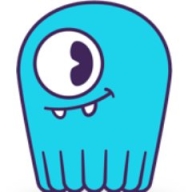


Find out what your peers are saying about MongoDB, ScyllaDB, InfluxData and others in NoSQL Databases.



Cassandra is a distributed and scalable database management system used for real-time data processing.
It is highly valued for its ability to handle large amounts of data, scalability, high availability, fault tolerance, and flexible data model.
It is commonly used in finance, e-commerce, and social media industries.
MongoDB is a flexible and scalable NoSQL database solution that efficiently handles both structured and unstructured data. It is known for its ease of use, JSON capabilities, and efficient data handling, making it ideal for developer-friendly environments.
MongoDB stands out with features like sharding, geospatial indexing, and its open-source nature. Users find it fast and appreciate its seamless integration into different applications. Despite being powerful, it remains straightforward to set up and use, bolstered by a clustering and aggregation framework that enhances its functionality. While generally appreciated for its cost-effectiveness and broad application compatibility, there is room for improvement in security, enterprise integration, and the creation of more robust training and documentation resources. Enhancing performance and adding support for traditional relational database concepts could also prove beneficial.
What are MongoDB's most important features?MongoDB finds widespread application across industries like healthcare, logistics, and telecommunications. It efficiently powers IoT platforms, data analytics, and document management systems. Its schema flexibility and JSON storage capabilities make it ideal for real-time processing and multi-server databases, essential for handling large-scale data volumes in modern applications.
ScyllaDB is an open-source, distributed NoSQL wide-column datastore (a highly scalable NoSQL database), known for its compatibility with Apache Cassandra, and for supporting the same protocols as Cassandra (CQL and Thrift) and the same file formats (SSTable). ScyllaDB is designed for high throughput and low latency, making it suitable for data-intensive applications. Its architecture allows it to deliver remarkable performance on a massive scale, utilizing modern multi-core servers to their fullest potential
ScyllaDB utilizes a similar architecture, data format, and query language as Apache Cassandra, providing compatibility while dramatically improving speed and scalability.
The key advantages of ScyllaDB include its rewritten C++ implementation that eliminates Cassandra's expensive Java garbage collection pauses, built-in caching for fast access to frequently used data, and shard-aware drivers for direct routing of requests. This enables it to fully leverage modern multi-core servers for massive parallelism. The community is active and the latest major release, ScyllaDB Enterprise 2023.1.0 LTS, incorporates over 5,000 code commits focused on enhancing capabilities.
ScyllaDB supports wide-column data modeling for fast read performance at scale. It includes integrated monitoring and management tools to track database health and performance. For organizations looking to boost speed and reduce costs for NoSQL workloads, ScyllaDB offers a drop-in replacement for Cassandra that delivers lower latency, higher throughput, and increased scalability with fewer nodes. Its seamless migration path makes switching from Cassandra seamless, requiring minimal code changes.